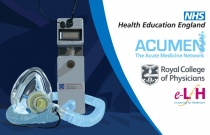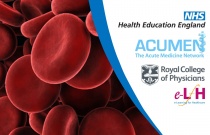Dentine Hypersensitivity
Nicola West BDS FDS RCS PhD FDS
This session will outline the prevalence, distribution, differential diagnosis, aetiology and treatment, to enable a management strategy to be drawn up for the dental team to treat patients with dentine hypersensitivity.
BNF Usage and Other Prescribing Information Sources
Sarah Morse
0.50 Hours
This session describes the British National Formulary (BNF) as a primary source of medicines information, highlighting key sections in the BNF and their application, and the formats of drug monographs. It also describes the limitations of the BNF as a source of medicines information and describes other sources of information ava....
Prudent Use of Antibiotics (Part 2)
Nick Cooley and Greg Scutt and Paul Wade
0.50 Hours
The aim of this session is to promote rational use of antibiotics in optimising treatment of patients with infections and reducing emergence of antibiotic resistance. Risks associated with antimicrobial use in patients who may have penicillin allergy will be explained.
Safer Medicine Use Through Concordance
Wendy Clyne and Patricia Black and Alison Blenkinsopp
0.50 Hours
As many as half of all medicines prescribed are never taken by patients. This session will provide an understanding of the reasons for this and of how, in your prescribing consultations, you can achieve concordance.
Acute Management of Accidental Hypothermia and its Complications
Aram Salehi
0.25 Hours
This session looks at the diagnosis and management of an accidental hypothermic patient presenting either with or without cardio respiratory arrest, and common complications. The initial rescue and recovery is not covered in this session.
Causes, Investigation and Management of Valvular Disease in Pregnancy
Sara Thorne
0.50 Hours
Valvular heart disease may be poorly tolerated in pregnancy; its recognition, assessment and management is detailed in this session.
Different Presentations of Anginal Chest Pains
Akhil Kapur and Sean Gallagher
0.25 Hours
This session describes the different presentations of patients with ischaemic heart disease.
Brugada Syndrome
Kim Rajappan
This session addresses the incidental ECG finding of a Brugada pattern. It includes the identification of ECG abnormalities, the implications of the finding and how to manage the patient.
Causes of Anaemia Associated with Breathlessness
Ranjit Dasgupta
0.25 Hours
This session will look at the classification of anaemia based on red cell indices and the associated factors leading to breathlessness in an anaemic patient.
Prescribing Safely in Pregnancy
Charlotte Frise
0.50 Hours
This session will focus on prescribing in pregnancy, and the important issues to consider when counselling a pregnant or potentially pregnant woman about this. These include risk/benefit analysis for medications for the treatment of chronic medical conditions, as well as errors of omission for acute medical problems encountered....
Communication and Co-ordination of Care for the Complex Obstetric Patient
Charlotte Frise
0.50 Hours
An obstetric patient with acute or chronic medical complications often requires specialist input from a variety of specialties. This session describes the input from a range of specialties into some examples of acutely ill obstetric patients.
Pre-Travel Advice
Nick Jones
0.50 Hours
This session is the first in a series of sessions about travel advice for patients and provides a broad overview of the issues GPs must consider when advising patients before they travel.
Recurrent Wheeze in Children
Peter Young
0.50 Hours
This session looks at the diagnosis and management of children presenting with recurrent wheeze, and is based around three cases, each highlighting the assessment and management of wheeze under different circumstances. This session was reviewed by Dirk Pilat and last updated on 18/07/17.
Childhood Obesity
Faye McCleery and Sunaina Khanna
0.50 Hours
This session explores the diagnosis, management and prevention of childhood obesity. It also looks at how to identify and manage obesity-related comorbidity. This session was reviewed by Charlene Mulhern and last updated on 19/01/17.
Practical Approaches to Improving Adherence and Concordance
Marcelle Sousa and Terry Segal
0.50 Hours
This session explores ways to develop strategies to help young people and their families to follow agreed treatment regimes. The session features general ideas, as well as specific practical tips, and includes video clips.
Recognising Common Mental Health Problems
Dick Churchill
This session describes the features of some of the most common, and some of the most serious of mental health disorders in adolescence and the characteristics that may help distinguish them from each other. It also describes some of the important stages of assessing a young person presenting with mental health problems, particul....
Common Neonatal Problems
Mansoora Arshad
0.50 Hours
This session describes common neonatal problems and how to manage them in general practice. This session was reviewed by Matthew Castleden and last updated in March 2015.
Common ENT Conditions in Children
Joanna Coy
0.50 Hours
This session describes the common childhood ear, nose and throat conditions seen in primary care, including: croup, airway obstruction, acute otitis media, otitis media with effusion and allergic rhinitis. Diagnostic criteria and management options are discussed.
Acute Confusion and Off Legs
Shane O'Hanlon
0.50 Hours
Common in older people, delirium, also known as acute confusional state and 'off legs' have subtle features, leading to under-diagnosis. A result of several causes, they may lead to serious long term problems. Early recognition and management is therefore vital. This session was reviewed by Paresh Dawda and last updated on 27/03....
Pelvic Pain
Melissa Sayer
0.50 Hours
This session uses an interactive case-based discussion to look at chronic pelvic pain, its investigation and appropriate holistic management.
Antenatal Care
Cassy Henderson
0.50 Hours
This session considers the antenatal care of a healthy pregnancy and associated health promotion. It also deals with 'expected' complications of pregnancy and highlights red flags that may indicate serious problems.
Diabetes in Pregnancy
Clare Etherington
During this session you will learn about the care of women with diabetes from pre-conception through to the postnatal period, and about screening for and treatment of gestational diabetes.
An Introduction to Significant Event Audit
Tracy Ruthven Director, Clinical Audit Support Centre Limited and Stephen Ashmore Director, Clinic
0.50 Hours
This session will assist general practitioners and their staff in understanding the origins and importance of significant event audit (SEA). For practical application see session - How to Perform Significant Event Audit Successfully in Your Practice.
Ankle Pain
Adrian Dunbar
0.50 Hours
This session discusses common causes of pain around the ankle joint and, in particular, the Achilles tendon.
Assessment And Diagnosis Of Cfs/Me In Adolescence
Anna Gregorowski
0.50 Hours
This session introduces the learner to chronic fatigue syndrome/myalgic encephalomyelitis (CFS/ME) and equips the learner with knowledge of when a diagnosis of CFS/ME should be made.
























